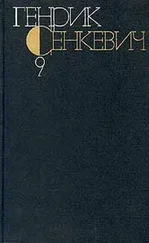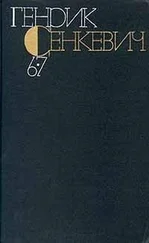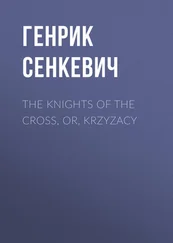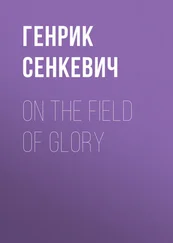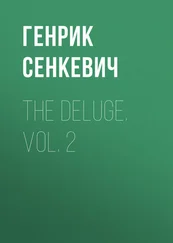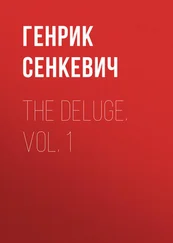Генрик Сенкевич - So Runs the World
Здесь есть возможность читать онлайн «Генрик Сенкевич - So Runs the World» — ознакомительный отрывок электронной книги совершенно бесплатно, а после прочтения отрывка купить полную версию. В некоторых случаях можно слушать аудио, скачать через торрент в формате fb2 и присутствует краткое содержание. Жанр: foreign_antique, foreign_prose, на английском языке. Описание произведения, (предисловие) а так же отзывы посетителей доступны на портале библиотеки ЛибКат.
- Название:So Runs the World
- Автор:
- Жанр:
- Год:неизвестен
- ISBN:нет данных
- Рейтинг книги:5 / 5. Голосов: 1
-
Избранное:Добавить в избранное
- Отзывы:
-
Ваша оценка:
- 100
- 1
- 2
- 3
- 4
- 5
So Runs the World: краткое содержание, описание и аннотация
Предлагаем к чтению аннотацию, описание, краткое содержание или предисловие (зависит от того, что написал сам автор книги «So Runs the World»). Если вы не нашли необходимую информацию о книге — напишите в комментариях, мы постараемся отыскать её.
So Runs the World — читать онлайн ознакомительный отрывок
Ниже представлен текст книги, разбитый по страницам. Система сохранения места последней прочитанной страницы, позволяет с удобством читать онлайн бесплатно книгу «So Runs the World», без необходимости каждый раз заново искать на чём Вы остановились. Поставьте закладку, и сможете в любой момент перейти на страницу, на которой закончили чтение.
Интервал:
Закладка:
"But the dusk did not last long," writes Sienkiewicz. "Soon from the Archipelago appeared the pale Selene and began to sail like a silvery boat in the heavenly space. And the walls of the Acropolis lighted again, but they beamed now with a pale green light, and looked more than ever like the vision of a dream."
But all these, and other equally charming pictures, disappear for a moment from the memory of the reader. There remains only the final joke – only Zeus's sentence. "A virtuous woman – especially when she loves another man – can resist Apollo. But surely and always a stupid woman will resist him."
Only when one thinks of the story does one see that the ending – that "immoral conclusion" I should say if I were not able to understand the joke – does not constitute the essence of the story. Only then we find a delight in the description of the city for which the wagons cater the divine barley, and the water is carried by the girls, "with amphorae poised on their shoulders and lifted hands, going home, light and graceful, like immortal nymphs."
And then follow such paragraphs as the following, which determine the real value of the work:
"The voice of the God of Poetry sounded so beautiful that it performed a miracle. Behold! In the Ambrosian night the gold spear standing on the Acropolis of Athens trembled, and the marble head of the gigantic statue turned toward the Acropolis in order to hear better… Heaven and earth listened to it; the sea stopped roaring and lay peacefully near the shores; even pale Selene stopped her night wandering in the sky and stood motionless over Athens."
"And when Apollo had finished, a light wind arose and carried the song through the whole of Greece, and wherever a child in the cradle heard only a tone of it, that child grew into a poet."
What poet? Famed by what song? Will he not perhaps be a lyric poet?
The same happens with "Lux in Tenebris." One reads again and again the description of the fall of the mist and the splashing of the rain dropping in the gutter, "the cawing of the crows, migrating to the city for their winter quarters, and, with flapping of wings, roosting in the trees." One feels that the whole misery of the first ten pages was necessary in order to form a background for the two pages of heavenly light, to bring out the brightness of that light. "Those who have lost their best beloved," writes Sienkiewicz, "must hang their lives on something; otherwise they could not exist." In such sentences – and it is not the prettiest, but the shortest that I have quoted – resounds, however, the quieting wisdom, the noble love of that art which poor Kamionka "respected deeply and was always sincere toward." During the long years of his profession he never cheated nor wronged it, neither for the sake of fame nor money, nor for praise nor for criticism. He always wrote as he felt. Were I not like Ruth of the Bible, doomed to pick the ears of corn instead of being myself a sower – if God had not made me critic and worshipper but artist and creator – I could not wish for another necrology than those words of Sienkiewicz regarding the statuary Kamionka.
Quite another thing is the story "At the Source." None of the stories except "Let Us Follow Him" possess for me so many transcendent beauties, although we are right to be angry with the author for having wished, during the reading of several pages, to make us believe an impossible thing – that he was deceiving us. It is true that he has done it in a masterly manner – it is true that he could not have done otherwise, but at the same time there is a fault in the conception, and although Sienkiewicz has covered the precipice with flowers, nevertheless the precipice exists.
On the other hand, it is true that one reading the novel will forget the trick of the author and will see in it only the picture of an immense happiness and a hymn in the worship of love. Perhaps the poor student is right when he says: "Among all the sources of happiness, that from which I drank during the fever is the clearest and best." "A life which love has not visited, even in a dream, is still worse."
Love and faith in woman and art are two constantly recurring themes in "Lux in Tenebris," "At the Source," "Be Blessed," and "Organist of Ponikila."
When Sienkiewicz wrote "Let Us Follow Him," some critics cried angrily that he lessens his talent and moral worth of the literature; they regretted that he turned people into the false road of mysticism, long since left. Having found Christ on his pages, the least religious people have recollected how gigantic he is in the writings of Heine, walking over land and sea, carrying a red, burning sun instead of a heart. They all understood that to introduce Christ not only worthily or beautifully, but simply and in such a manner that we would not be obliged to turn away from the picture, would be a great art – almost a triumph.
In later times we have made many such attempts. "The Mysticism" became to-day an article of commerce. The religious tenderness and simplicity was spread among Parisian newspaper men, playwrights and novelists. Such as Armand Sylvèstre, such as Theodore de Wyzewa, are playing at writing up Christian dogmas and legends. And a strange thing! While the painters try to bring the Christ nearer to the crowd, while Fritz von Uhde or Lhermitte put the Christ in a country school, in a workingman's house, the weakling writers, imitating poets, dress Him in old, faded, traditional clothes and surround Him with a theatrical light which they dare to call "mysticism." They are crowding the porticos of the temple, but they are merely merchants. Anatole France alone cannot be placed in the same crowd.
In "Let Us Follow Him" the situation and characters are known, and are already to be found in literature. But never were they painted so simply, so modestly, without romantic complaints and exclamations. In the first chapters of that story there appears an epic writer with whom we have for a long time been familiar. We are accustomed to that uncommon simplicity. But in order to appreciate the narrative regarding Antea, one must listen attentively to this slow prose and then one will notice the rhythmic sentences following one after the other. Then one feels that the author is building a great foundation for the action. Sometimes there occurs a brief, sharp sentence ending in a strong, short word, and the result is that Sienkiewicz has given us a masterpiece which justifies the enthusiasm of a critic, who called him a Prince of Polish Prose.
In the second period of his literary activity, Sienkiewicz has produced his remarkable historical trilogy, "The Deluge," "With Fire and Sword," and "Pan Michael," in which his talent shines forth powerfully, and which possess absolutely distinctive characters from his short stories. The admirers of romanticism cannot find any better books in historical fiction. Some critic has said righteously about Sienkiewicz, speaking of his "Deluge," that he is "the first of Polish novelists, past or present, and second to none now living in England, France, or Germany."
Sienkiewicz being himself a nobleman, therefore naturally in his historical novels he describes the glorious deeds of the Polish nobility, who, being located on the frontier of such barbarous nations as Turks, Kozaks, Tartars, and Wolochs (to-day Roumania), had defended Europe for centuries from the invasions of barbarism and gave the time to Germany, France, and England to outstrip Poland in the development of material welfare and general civilization among the masses – the nobility being always very refined – though in the fifteenth century the literature of Poland and her sister Bohemia (Chechy) was richer than any other European country, except Italy. One should at least always remember that Nicolaus Kopernicus (Kopernik) was a Pole and John Huss was a Chech.
Читать дальшеИнтервал:
Закладка:
Похожие книги на «So Runs the World»
Представляем Вашему вниманию похожие книги на «So Runs the World» списком для выбора. Мы отобрали схожую по названию и смыслу литературу в надежде предоставить читателям больше вариантов отыскать новые, интересные, ещё непрочитанные произведения.
Обсуждение, отзывы о книге «So Runs the World» и просто собственные мнения читателей. Оставьте ваши комментарии, напишите, что Вы думаете о произведении, его смысле или главных героях. Укажите что конкретно понравилось, а что нет, и почему Вы так считаете.


